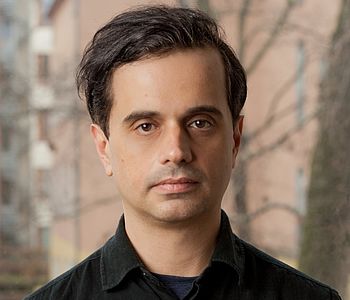Dr. Telmo Menezes | Researcher
Former Member
Home Institution
:
CNRS
|
Disciplines
:
Information and Communication Sciences
|
Biography
I have a background in artificial intelligence, and I have long been interested in the idea of computation as a means of abstracting and modelling phenomena in nature and society, as well as in interdisciplinary research in general. This interest led me, during my doctoral work, to the field of Complex Systems and then to my current field of Computational Social Sciences.
I am a member of the Computational Social Sciences team and the European SOCSEMICS research project, led by Camille Roth at the Centre Marc Bloch.
My current research focuses mainly on automatic text comprehension and knowledge representation for social science research, specifically mapping the landscape of beliefs and perspectives in the public space, as well as modelling its dynamics.
In recent decades, information and communication technologies have profoundly changed public spaces. Digital media now plays a central role at different scales, from the political communications of world leaders to the personal sphere of family, friendship and dating. The new digital public space is a very complex socio-technical system that has emerged in a decentralized way, and which presents dynamics that are far from being fully understood, but which, obviously, are already causing profound social changes. Whereas in the past empirical data were scarce and required a lot of effort to obtain them, today we have the opposite problem -- that of being flooded with data. Something has not changed: all the richness of human interaction that is contained in the texts, their meaning and context. On the one hand, it is impossible for researchers to read and analyze even a small fraction of these corpora. On the other hand, full comprehension of the text on a human scale is still a distant dream, even considering recent advances in Artificial Intelligence.
It is however possible to create scientific instruments that fill this gap, by using artificial intelligence to extract meaning, providing researchers with ideas that can then guide them in their exploration and help them validate their hypotheses. For this project, I initiated and developed a knowledge representation formalism (the semantic hypergraph), as well as a framework of algorithms to transform the text into this representation and also to perform the knowledge inference. This work is available at http://graphbrain.net.
Researchtopic
Digital Humanities; Knowledge Graphs; Social Network Analysis; Computational Sociology; Natural Language Processing; Applications of Artificial Intelligence to the social sciences.
Institution of thesis
Projects
Algopol; Phantom Grenzen